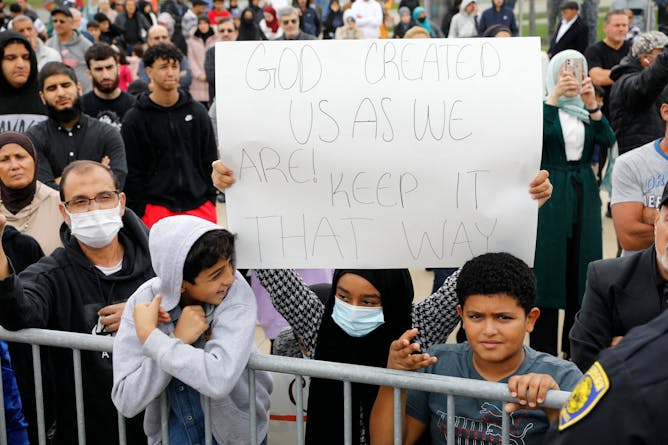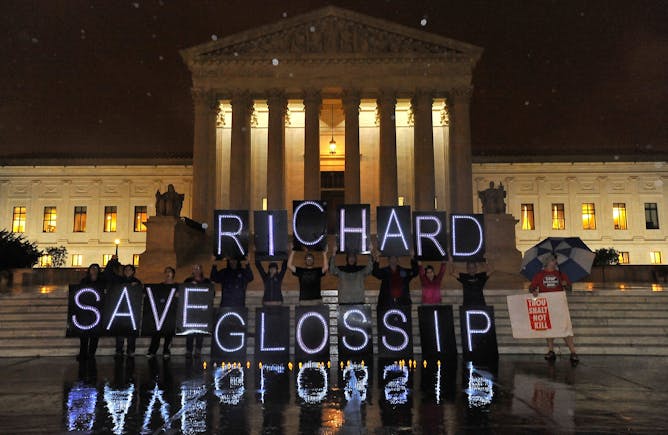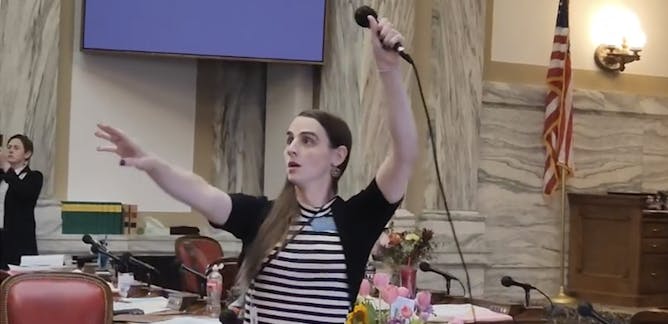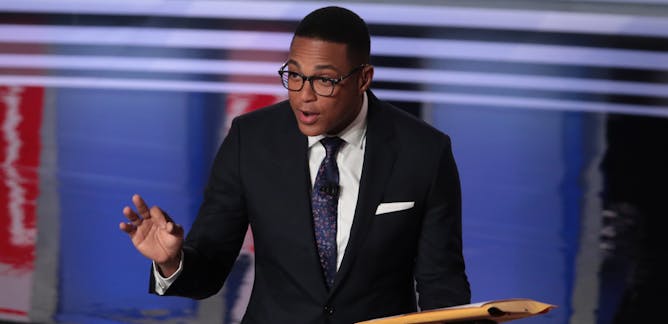|
|
|
|
As the first editor at The Conversation to cover the democracy beat, I’ve found that I could spend about 80% of my time on First Amendment and free speech stories. There’s been a lot of activity in the U.S. over the past six months around who gets to speak, who gets shut down, what kind of expression is allowed and what isn’t. From banning drag shows in Tennessee to telling teachers what they can’t teach and stopping controversial personalities from speaking in public, we’ve covered what looks like a growing trend of censoriousness.
In legal scholar Erica Goldberg’s story today, you can read about how that rising tide isn’t ideologically fixed at one end of the political spectrum. It’s coming from the right and the left.
Now, she writes, besides the specific examples of speech repression that she cites, there’s been “a documented shift in public attitudes about free speech … that is more diffuse, but highly consequential for democracy. Younger progressives seem eager to use the heckler’s veto to intimidate or block people from speaking.”
And that signals something disturbing to Goldberg, a professor at the University of Dayton, who says that “instead of using speech or protest to counter the speech or expression that critics dislike, people on the right and the left appear to want to prevent ideas they don’t like from entering the conversation.”
|

|
Naomi Schalit
Democracy Editor
|
|

Demonstrators who support banning books gather during a protest outside of the Henry Ford Centennial Library in Dearborn, Mich., on Sept. 25, 2022.
Jeff Kowalsky/AFP via Getty Images
Erica Goldberg, University of Dayton
Free speech is under attack from both sides of the political spectrum.
|

Enrique Tarrio, center, stands with other Proud Boys at a 2019 rally in Portland, Oregon.
AP Photo/Noah Berger
Jeff Inglis, The Conversation
Who are the Proud Boys, what do they want and is there a path back into society for these extremists?
|

Protesters demonstrate against the conviction and death sentence of Richard Glossip.
Larry French/Getty Images for MoveOn.org
Austin Sarat, Amherst College
Despite support for clemency from Oklahoma’s top prosecutor, a death row inmate appears set to die on May 18.
|
|
|

Alauna Safarpour, Harvard Kennedy School
Thomas Jefferson, the third president of the United States, first established a set of political decorum rules in legislatures to help establish stability during the country’s early years.
| |

John C. Watson, American University
Dominion’s settlement of its defamation suit against Fox News provided a solution for Dominion – but it did nothing to help journalism.
|

Nolan Higdon, California State University, East Bay
Since the 1980s, cable news networks have focused on hyperpartisan news coverage to attract core audiences in an increasingly fragmented media market.
| |

Davis W. Houck, Florida State University
While Bryant Donham was never charged for her involvement in Till’s death, the Justice Department continued to investigate the case and consider the potential for an arrest as recently as 2021.
|
|
|
|
|
-
Arie Kruglanski, University of Maryland
Is there ever a satisfactory answer to questions about what motivated a mass shooter? There is, but it’s not what you think.
-
Patrick James, USC Dornsife College of Letters, Arts and Sciences
It’s been more than 20 years since the US invaded Iraq, but the invasion still provides a cautionary tale about getting involved in an expensive war abroad.
-
Sehoon Kim, University of Florida
Three forces are pulling down ESG’s once-rapid rise in the investment world.
-
Christopher Tounsel, University of Washington
Sudan’s location and natural resources have attracted international partners keen to benefit either geopolitically or economically.
|
|
|
Like this newsletter? You might be interested in our other weekly emails:
|
| |
| |
| |
| |
|
|
|
|
|
|
|